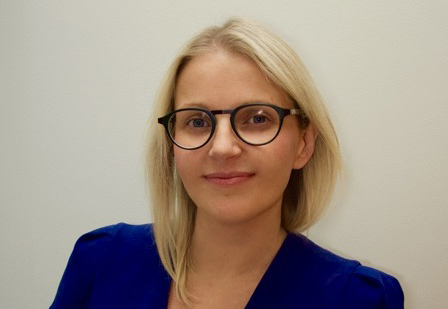Emerging scholar in law and emotions brings latest research to University of Manitoba
Dr. Emily Kidd White, Distinguished Visitor to Robson Hall February 29, 2024
The Distinguished Visitors Lecture Series committee members invite the University of Manitoba academic community to a lecture on “Images of Reach, Range, and Recognition: On Emotions in the Study of Law” to be given by Assistant Professor Emily Kidd White, Osgoode Hall Law School on Thursday, February 29, 2024 at 12:00 p.m. in room 207 at Robson Hall.
Dr. Kidd White’s areas of teaching and research specialization are in legal and political philosophy, constitutional law, and public international law. She holds a JSD, and an LLM in International Legal Studies, both from New York University School of Law, a JD from Queen’s University Faculty of Law, and a BAH in Politics and Philosophy also from Queen’s. She had been a Postdoctoral Fellow at the Jack & Mae Nathanson Centre on Transnational Human Rights, Crime and Security, has held a research fellowship at the Jean Monnet Center for Regional and International Economic Law and Justice, and previously taught with the Institute for International Law and Justice. Dr. Kidd White is a faculty member of the Ontario Legal Philosophy Partnership.

Dr. Emily Kidd White is an Assistant Professor at Osgood Hall Law School.
An emerging scholar in the field of law and emotions, Dr. Kidd White will soon publish a work on Judicial Emotions with Oxford University Press. Along with Susan Bandes, Jody Madeira, and Kathryn Temple, Professor Kidd White is editing the Edward Elgar Research Handbook on Law and Emotions.
On Thursday, the University of Manitoba community can expect to hear Dr. Kidd White discuss the critical potential in bringing together the philosophy of emotion and the study of law. In the abstract for her talk, she explains:
“Narratives about legitimate political and legal authority have tended to either assume that it is possible to extricate emotions from political judgement, or to rest upon uncomplicated (and wholly demystified) assumptions about the legibility of emotions over time and place. Philosophers interested in emotion have regularly grappled with questions concerning an emotion’s reach and range (insofar that the emotion in question bears an intersubjective component), and recognition (comprehensibility) of emotions beyond one’s own social and political communities (or even beyond one’s self). Emotions contain evaluative judgments, and, as such, they strike as subjectively involved and image-laden “engagements with the world” (to quote Robert Solomon’s memorable phrase). Where evaluative judgements are embedded within the structure of an emotion, we can expect it to be scripted, at least to an extent, by time and place, which raises, in turn, questions of all sorts pertaining to reach, range, and recognition. This talk will explore a whole series of questions that the philosophy of emotions raises for the study and practice of law.”
All are welcome to attend the talk on Thursday, February 29, 2024 at 12:00 p.m. in Room 207, Robson Hall.






